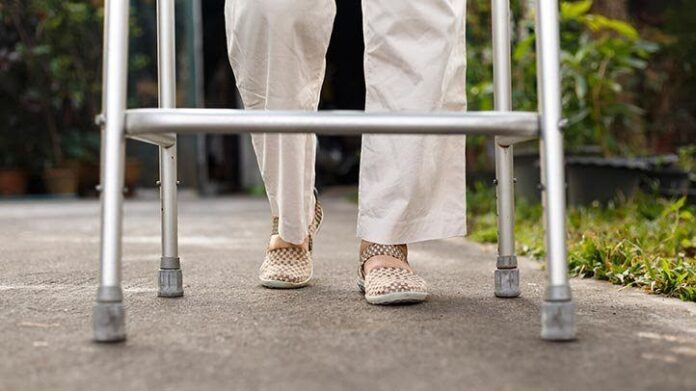It is very likely for older adults to experience chronic illnesses. So, caring for them is a responsibility many of us face at some point in life, especially when it’s for our parents.
When caring for older adults, the first choice is often home care. But in some cases, providing round-the-clock home care is not possible. Therefore, many families opt for facility placements.
Facility placements have many benefits, such as 24/7 professional care and a chance to live among people going through similar issues. However, opting for it is accompanied by many emotions, such as guilt, sadness, hope, and satisfaction. You are happy that your older loved one is getting professional care. But simultaneously, you are sad and guilty for not providing them with home care.
With that said, whether you opt for facility placement or arrange for home care for your older adults, the ultimate responsibility is on you. Therefore, when your parents reach old age, you must be ready to adapt and provide them with the care they deserve.
Below are some ways to ensure the best care for your elderly parents.
Assess their needs

With time your parents’ needs change. Therefore, assessing their needs is one way to provide them with the best care. By clearly understanding their current condition, you can tailor your caregiving approach to meet their needs.
Some parents require only a certain level of care that can be provided at home, while others require medical care from a professional.
If your parents need help with tasks like taking medicine on time, you can look after them at home.
An easy way to provide medicine on time is by buying multi-dose packaging that bundles all the medication that must be taken together. Such packaging makes it easy to manage medicine dosage, especially if your parents take medication for various illnesses.
On the contrary, if your elders need round-the-clock medical care and help with household chores, you must hire a medical professional such as a house nurse.
One thing to understand regarding assessing your parents’ needs is that it is an ongoing process. Therefore, it is important to talk to them regularly and ensure periodic medical checkups to stay updated about their needs.
Enhance safety measures to prevent accidents
As your parents approach old age, their senses and reflexes become slower and weaker. Consequently, they are more predisposed to accidents such as falls. So, consider enhancing the safety of your house to ensure proper care for your parents at home.
You can make the house safe for your parents by thoroughly assessing the living space. Identify potential hazards such as loose rugs, slippery floors, or cluttered pathways.
Remove or secure any tripping hazards and keep floors clean and dry. Install handrails on the stairs and in the bathing area to provide stability and support. Adding grab bars near toilets and in the shower or bath area can also assist with balance and prevent falls.
Besides the measures above, you can put a seat or bench to provide a stable and secure seating option.
Additionally, the bathroom should be armed with easy-to-access supplies such as hand soap, towels, and toiletries to minimize unnecessary movements.
Manage medical appointments

When caring for elderly parents, you must ensure that they make and attend their medical appointments as instructed by their doctors. Keeping track of your parents’ appointments and coordinating with their healthcare provider ensures they get the necessary medical attention.
The first step to managing your parents’ medical appointments is developing a system to keep track of upcoming and past appointments. Use a calendar, a digital reminder, or a journal to record the time, dates, and locations of meetings. Make notes to jot down additional instructions, such as fasting for blood work or bringing a list of medications.
In addition to managing appointment schedules, staying in contact with healthcare ensures effective communication and continuity of care. Keep the doctor’s contact information readily available and inform them about any changes in your parent’s health or concerns you may have.
If you don’t have time, designate a person to accompany your parents during medical appointments. Instruct them to ask questions on your behalf and take notes for future reference.
Provide the right footwear to your parents

Providing appropriate footwear offers good support and traction, both indoors and outdoors.
Look for footwear with non-slip soles and a secure fit to prevent tripping. Loose-fitting or slippery shoes can increase the risk of falls and make walking difficult for your parents.
Also, make sure the shoes you choose for them are easy to put on and take off, with Velcro or elastic closures instead of laces.
Regularly check the condition of your parents’ shoes and replace them when worn out to maintain optimal support and functionality.
Seek help from support groups
Providing exceptional care to your parents is often overwhelming. It is also emotionally tiring and challenging. So, as a caregiver, it’s essential to recognize the importance of seeking support for yourself.
Connecting with support groups and utilizing available resources can provide valuable assistance, guidance, and a sense of community during this journey. In these groups, you get a unique space to associate with other caregivers going through similar experiences.
You can share your stories, challenges, and insights and find solace in knowing you are not alone. You also get a chance to express your feelings and frustrations that may be difficult to share with family or friends.
Apart from emotional comfort, support groups also provide a way to get practical advice for improving your caregiving endeavors. Often you get to attend educational sessions by guest speakers and get valuable information on caregiving-related topics.
Promote health and wellness

By encouraging your parents to make responsible lifestyle changes, you can ensure a better quality of life and overall well-being for them.
Encourage them to exercise regularly to maintain proper physical health. Exercise plays a crucial role in strengthening bones and muscles and promoting flexibility and lithiness. Consider exploring senior-friendly exercise classes or programs specifically designed for older adults.
Besides exercise, eating a balanced diet is essential for promoting your elderly parents’ overall well-being. Inspire them to make healthy food choices and add a variety of foods to their plate. Provide support in meal planning and preparation, ensuring that their dietary needs and preferences are met.
Conclusion
Taking care of your elderly parents is challenging. But it becomes manageable if you have support from other family members. Attending support groups for getting caregiving-related advice helps too. Additionally, embracing the journey with compassion, patience, and a proactive mindset can also make a significant difference in their lives.






